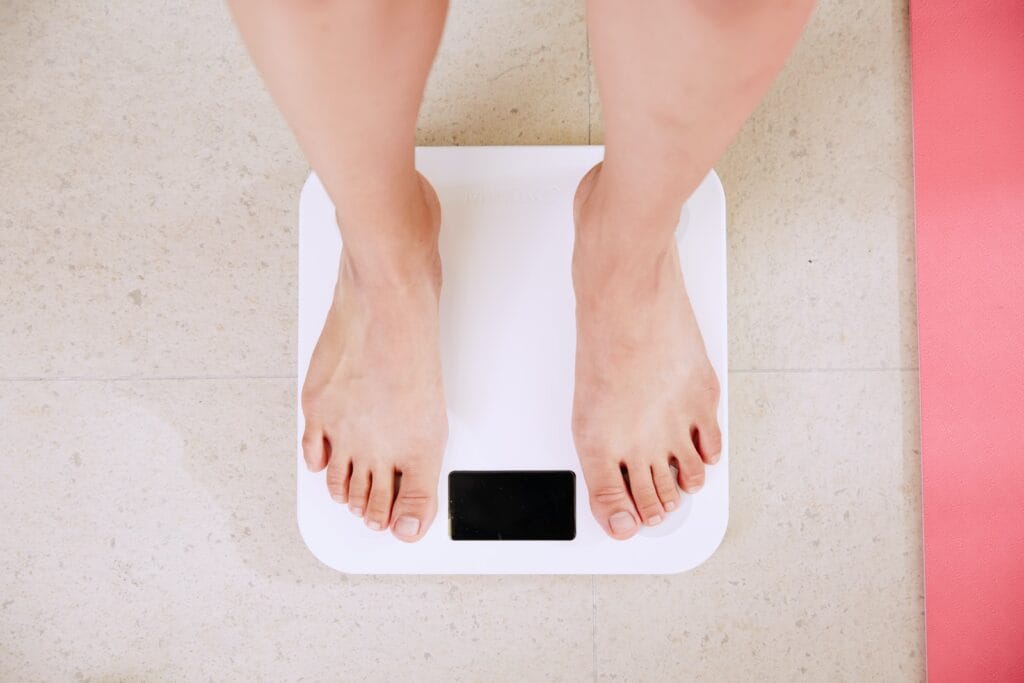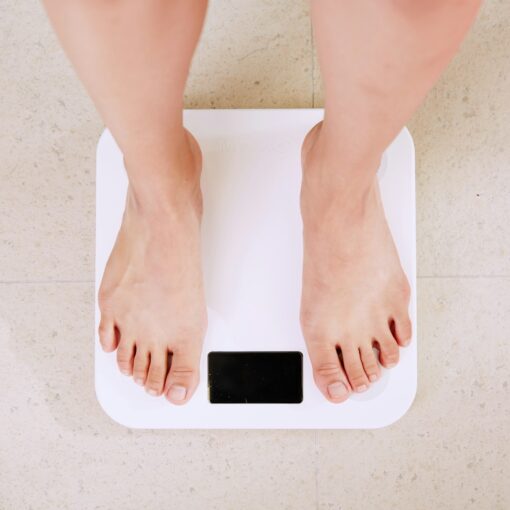Learning the ins and outs of dieting can be excruciatingly painful. You see, there is simply too much bad information mixed in with the good information.
Why is there so much snake oil advice? Because there is simply too much money to be made selling diets. And where there is money to be made, oodles of entrepreneurs will take advantage.
Key Concepts and Top Takeaways
– Set realistic goals: Aim for gradual weight loss of 1-2 pounds per week.
– Avoid skipping meals: Eat regular meals to maintain energy and prevent bingeing.
– Don't rely on fad diets: Choose sustainable eating habits instead of quick fixes.
– Track food intake: Keep a journal to monitor what you eat and identify patterns.
– Stay hydrated: Drink plenty of water throughout the day to curb hunger.
– Focus on whole foods: Prioritize fruits, vegetables, lean proteins, and whole grains.
– Watch portion sizes: Use smaller plates to help control serving sizes.
– Limit processed foods: Reduce intake of sugary snacks and high-calorie drinks.
– Incorporate exercise: Combine diet with physical activity for better results.
– Seek support: Join a group or find a buddy for accountability in your journey.
Please Note: This post may contain affiliate links. If you click one of them, we may receive a commission at no extra cost to you. As an Amazon Associate, I earn from qualifying purchases.

So, without further ado, here are 5 mistakes women make with their nutrition when losing weight:
1. Not fueling up before exercise: If you train on an empty stomach, not only will you feel sluggish, but you will also burn a lower percentage of body fat! So don’t be afraid of eating before your workouts. Just make sure you don’t have simple sugars. Opt for slow digesting carbs with a little healthy fat.
Sometimes when we think about eating, we don't realize that certain foods release a lot of energy. Studies show that if you exercise in a fasted state, your body burns through more glucose and muscles have to use protein as an energy source. This is much more difficult for the body to do and can lead to muscle breakdown and increased fat. By eating before exercise, you provide enough fuel for the body, so it doesn't have to use protein or muscle during your workout.
Most people know the common recommendation of drinking 8 ounces of water an hour before exercising to ensure there is enough fluid in the body. While many people follow this advice, some do not. The lack of hydration for these individuals may cause headaches, nausea, and increased heart rates or blood pressure, leading to a more intense or unpleasant experience during exercise.
One of the most common misconceptions about how to fuel your body before exercise is that you must eat a lot of carbs. In reality, you need to fuel up with a mix of carbohydrates and protein to make sure your muscles have the energy they need for exercise.
2. Not eating right after exercising: One of the best ways to recover as quickly as possible from exercise is to eat right after. And if you recover quicker, you can exercise more frequently. So don’t let more than thirty minutes go by before you eat.
Working out is a great way to maintain a healthy lifestyle, but it's important to recognize that not everyone's bodies function the same. Some people find that sticking to a post-workout meal about an hour after exercising can help reduce muscle soreness and boost performance in the gym.
Athletes and exercisers alike should know ways to restore both their energy and health after a tough workout by following some basic guidelines.
When one exercises, the body releases a hormone called cortisol, which helps release sugar from its storage. Without eating right after exercising, this sugar will begin to break down and the individual may suffer from a host of symptoms including dizziness, blurred vision, fatigue, nausea and headaches. Eating a snack or meal within about 30 minutes of finishing exercise is the best way to prevent these symptoms.
3. Supplanting whole food with supplements: A balanced meal with always be much healthier for you than a protein bar or a meal replacement shake. In fact, the term meal replacement is very misleading, since a packet of powder can never replace a meal in its nutritional entirety.
The word supplant can mean to make a substitute or replacement for something, and it is often used as a verb. Supplanting whole food with supplements has been a growing trend among self-proclaimed health buffs and fitness enthusiasts who strive to achieve a specific goal. So, what's wrong with that? Well, from the perspective of those who are conscious about their diets, there are many things wrong with it.
4. Believing labels: The supplement industry remains largely unregulated, and the food industry has many FDA loopholes that can be taken advantage of. Thus, you should never trust a product's label. Instead, always read the nutrition facts.
A common mistake often made by shoppers is not reading the nutrition label on products before buying them. By following this rule, you can avoid purchasing something that has a high level of sugar or sodium and just isn't worth your time and money.
While manufacturers are permitted to print their own product labels, the FDA does regulate how they display information. The front of a product label displays instructions for use and nutritional information. Basic information like calories and sugar will be on the front of the label. Additional nutrients like omega-6 and omega-3 fatty acids will also be displayed, but not in detail.
The product's labels are not enough to tell you the information about the product's nutritional value. You will find that some foods have a higher amount of sugar or fat than you would think. It is easy to read the nutrition facts on the back of the product, which gives more in-depth detail about what is in it. If you want to know more about what you are eating, always read the nutrition facts.
5. Overindulging because of exercise: Just because you exercise doesn’t mean you can eat anything you want. There are many women who exercise their hearts out but eat so much food that their body weight doesn’t change. Exercise is not a free ticket to eat whatever you want!
In recent years, the negative stigma that has been associated with overindulging on food after a hard work-out is disappearing. However, as the number of people who exercise has increased, this misconception as well as the resulting weight gain has also increased. In order to keep people from overeating and becoming overweight, it's important to understand what is happening when individuals work out. Exercise works in two different ways: by boosting metabolism or by suppressing hunger.
Running, biking, boot camp sessions – we all know that exercise can be exhausting and consuming. And with so many new fitness holidays coming up, we think we deserve a reward for our achievements. But what’s the point of getting to your goal weight if you pile on the pounds again afterwards? It’s easy to start overindulging because you’ve been working so hard and deserve a reward.
There are many people who feel inclined to overindulge in food after a workout. It may seem that getting into shape will then be easier, but the truth is that this behavior does not help or encourage weight loss. It can also have negative consequences on the body, such as increased risk of heart disease, diabetes, and other diet-related health problems. Additionally, it can lead to an unhealthy relationship with food, causing emotional eating when not exercising.
There is no perfect way to diet for weight loss. And expect to make many mistakes on your journey. The key here is to not get frustrated and course correct as quickly as possible.
Facts About Fast Weight Loss Diets
Sometimes avoiding the wrong steps can be just as effective as taking the right steps. That’s definitely true when choosing weight loss plans. By definition, weight-loss programs have the same goal. But they can have different success rates. Here are some of the biggest mistakes to avoid when selecting a weight-loss program:
1. Never choose fad diets or gimmick diets.
It seems that there’s always a new gimmick diet or fad diet that’s chic. These fads come and go because they’re based more on form than function. Yes, such diets can be appealing at first, and promise you the world. But consider the fact that fad diets and gimmick diets don’t have lasting value because they’re not consistently effective. Instead, choosing a weight loss plan with substance will give you a significantly better chance of reaching your target weight.
Fad diets are nothing more than a short-term solution to weight loss. Fad diets are very restrictive, meaning the person following the diet has to severely limit their food intake or eliminate entire food groups. This can lead to malnutrition, especially in people who have other health issues to worry about. Gimmick diets use tricks and tricks alone to help people lose weight.
Fad diets and gimmick diets might seem like an easy, quick fix to lose weight, but these diets usually don't work in the long-term. They often lead to people regaining their lost weight back, and sometimes even more than before. For example, the fad diet may be a low-carbohydrate diet that bans grains and sugars. This type of diet is not sustainable for life because it makes you feel terrible.
2. Never substitute convenience for safety.
Many diets come with pre-packaged meals. Is that OK? Sure, but be wary of unhealthy ingredients that they could contain, such as artificial colors, flavors, and preservatives. While diet plans with such ingredients could still help you to lose weight, they could also cause a wide array of other health problems in the process. Instead, read a diet plan’s ingredients labels carefully before choosing it.
It’s no secret that we live in a society of time-crunched, multitasking adults. In an effort to save time and money, the average person will order a meal from a takeout restaurant or grocery store that is packaged and processed rather than making it from scratch at home. However, this is not the best choice for people who are looking to lose weight because these pre-made meals often contain sodium and preservatives, which can lead to weight gain.
For many people, the decision to eat healthy and lose weight is a difficult one. When you're feeling hungry and see a doughnut, it's difficult to resist. However, if you're thinking about what's best for your health and longevity, it should be an easy decision. Recent research has shown that dieters who substitute convenience for safety when trying to maintain a healthy lifestyle are at risk of developing long-term negative effects on their health.
3. Never choose a diet without a scientific foundation.
While some diets might sound effective, that doesn’t necessarily mean that they’re scientifically sound. So when searching for a weight loss plan, consider if there’s some solid science to prove its effectiveness. Can cabbage, grapefruit, and vinegar aid in a weight-loss program? Sure, but be wary of certain diet programs that are based exclusively on such foods. Instead, do some research to determine if scientists have verified whether certain types of diets are indeed helpful in shedding pounds. If they aren’t, then you should start searching for an alternative weight-loss plan.
A diet can be a difficult decision to make, as there are many diets that have been proven to work. However, if you do not have a scientific foundation for your diet, then it is not something that should be followed. People who place themselves on a new diet should always look into the science of the diet and determine if their specific needs will be met.
Countless diets are promoted every day, but not all of these diets have a scientific foundation. For example, the Paleo diet consists primarily of meat, vegetables, and fruit. While you might lose weight on this diet, it is difficult to eat enough calories to maintain your energy levels. Furthermore, you can't be sure that all the claims made by proponents are backed up by science.
4. Never fail to do your homework.
Before choosing a particular type of diet, do some research about it. That could include personal referrals, professional reviews, and so on. If you can’t find a single review of a particular diet, then warning lights should go off in your head. And when sifting through reviews of a certain diet program, discover the overall consensus. A few dissatisfied customers shouldn’t cause you to disregard a diet program automatically.
With the variety of diets and eating plans available today, it can be overwhelming to know which diet is right for you. Amidst all the information, people with diabetes may need to consider their specific dietary needs before signing up for a particular plan.
However, oftentimes we might find ourselves in a situation where we just want to take our turn at trying something new and forget about diabetes for a while.
The notion that there is one perfect diet for everyone is false. There are many types of diets, and it’s important to find one that meets your needs. For example, if you are not vegan or vegetarian, you might want to go with a paleo diet, but if you are vegan or vegetarian, the best diet for you would be either pescatarianism or veganism.
5. Never choose a diet plan that makes outrageous claims.
While it’s normal for diet plan ads to make claims, you should avoid those that make outrageous ones. They could include how fast you can lose weight, how effortless it is to lose weight, and so on. Basically, if certain claims seem too good to be true, then they probably are. Does that mean that a weight loss plan shouldn’t claim that it can produce amazing results? No, but you should certainly consider how reasonable those claims are.
It is not uncommon for people to try and find quick fixes to lose weight. However, there are some who take this idea too far and choose a diet plan that makes outrageous claims. One popular diet, for example, promises that if you pay them $200 up-front, then they will guarantee that you'll lose 40 pounds in the next 3 months. This sounds tempting, but severe diets like this can potentially complicate any pre-existing health problems.
Many weight-loss diets make outlandish claims. It is important to evaluate the claims to see if they are sustainable or not. For example, a diet may claim that it can help you lose weight without changing your eating habits or lifestyle. Dieters will only experience short term results and will need to maintain a restrictive diet indefinitely to continue losing weight. When evaluating a diet plan, it is important to be diligent about the way the information is presented and remember that common sense should always prevail.
Don't be fooled by the marketing tactics of diet plans. Always read critically and make sure that there is a solid basis for the claims being made. That way, you'll avoid following a plan that has no scientific backing or one that requires a six-digit membership fee.
Determining which weight loss plan types to avoid will help to determine which types to choose. And avoiding the above mistakes will definitely help you to narrow down your search-and then make the right selection.
Do You Know the Greatest Approach to Losing Fat?
The largest error people make when they decide to lose weight is not setting practical objectives. They set their targets too high, which set them up for disappointment. The finest strategy to losing weight is to set sensible and doable, short-term goals. With each goal you achieve, you can set new objectives; this builds confidence and self-esteem.
After setting your goals, you should converse with your doctor about your weight loss strategy and ask for his/her recommendation. Your physician can assist you with giving knowledge about a healthier life-style by choosing foods that help support your dietary needs. It is always best to talk to your physician before you start any weight loss strategy; it's good to get a base-line weight and blood pressure, so your doctor can watch you as you begin to lose fat.
Once you recognize what got you to where you are, you have to adjust the way you see food. You can't allow your cravings and emotional bonds to food over-take your need to eat healthier and live a more vibrant life. The best ways to lose fat is by changing your habits; eating foods that are designed to work with your body and exercising to make your body stronger.
You don't need a structured diet plan to lose weight; you just need to take control of your life and understand and accept that if you want to live a long, happy life, you have to make some changes. Our bodies require certain vitamins and minerals to perform at its best; some diets minimize some of those vitamins and minerals, which is unhealthy and quite dangerous. Simply eating balanced, nutritious meals and exercising daily will offer you the quickest and most helpful and long-lasting results. Once you start eating correctly, you will notice that you will have more energy. Once you have more energy, you will want to exercise. Taking a brisk walk in the evening prior to bed is an excellent way to burn calories and jump start your metabolism.
It is extremely important to drink a lot of water; this has many effects to your body. Many times, we are likely to eat out of habit or boredom; a cup of water will help curb that yearning to eat, in addition it will provide your body its most important part of survival.
You don't have to go hungry or minimize your portions of foods as long as you are eating healthy foods. Eat until you are full and then stop. If you get hungry, eat again. As long as you are eating healthy foods that are supplying your body with what it desires, you are safe. The answer is in choosing the foods you eat. If you need something sweet, fruit offers this along with nutritional values that maintain a healthy eating habit. Food is what makes your metabolism work; when you don't eat because you are dieting, you are in fact slowing down your metabolism and holding back your weight loss. When you eat dietary foods, you are not only jump-starting your metabolism, but you are also feeding your body with what it desires. This gives you much more energy and the ability to be more energetic, thus you begin losing fat. In reality, eating more is the answer to losing weight, as crazy as it might sound. Read Fat Loss 4 Idiots Reviewed to find out how to use the calorie shifting technique so that you can in reality eat more and lose fat.
Take control of your life; set realistic objectives and move forward, day by day.

Kevin Collier is a seasoned health writer at Otchut.com, specializing in over-the-counter medicines, common medical ailments, and general health topics. With a background in healthcare and a passion for making medical information accessible, Kevin aims to empower readers with knowledge to make informed health decisions. When he's not writing, he enjoys researching the latest in health trends and advocating for wellness in his community.






